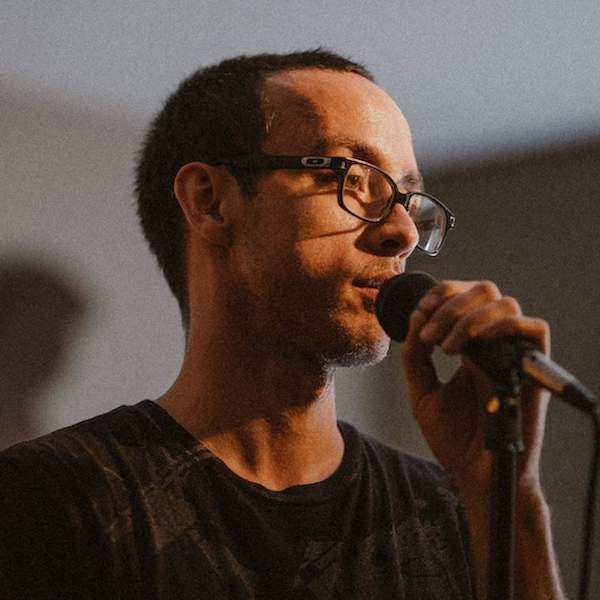Guest Album Review – “Big Boy” by Charlotte Cardin
This guest review was originally part of a music blog project I created called Under The Deer. Since that site won’t be around forever, I’m archiving these wonderful reviews and their accompanying illustrations here. Writer and illustrator listed at end of the review.
The Montreal singer and multi-instrumentalist, Charlotte Cardin, is my choice for the most interesting, most promising artist to emerge from a Canadian singing competition since Hedley started ruling the airwaves and Carly Rae Jepsen—who placed third on Canadian Idol in 2007—turned into a leading 1980’s pop revivalist.
After placing fourth on the first season of La Voix—the French-Canadian version of The Voice—in 2013, Cardin took the next three years to develop a style as eclectic and personal as it is accessible to mainstream listeners. On her debut E.P., Big Boy, this means upcycling pop music’s standard verse-chorus-verse song structure into a canvas for some of her strongest traits: confessional songwriting, nuanced vocals, and minimalist instrumentals that blend elements of jazz, electro, hip-hop, and R&B into grooves that’ll bob your head until it swims.

Cardin offers six songs that explore the end of love to a systematic degree, changing relationship scenarios in every song, and inhabiting the speakers with a gonzo-level of commitment that allows all of their edges to show. She is distinctive in her enunciation for being able to find new ways to bend words in the service of mood. In this way, she’s a jazz improviser, elevating Big Boy into catharsis, making words you use on a daily basis emote as you didn’t know they could.
The eponymous opening track is sultry R&B number directed at a lover who doesn’t want to take things any further than an initial tryst. Cardin delivers it with a taunting, playful tone, poking at the beloved’s lack of resolve, but also filling it with desire that betrays feelings yet to dissipate. All this is punctuated by some cascading hi-hats that back her up by being a total tease for the hypothetical recipient. She croons,
My boy is not a man yet
But boy, do I love it when you kiss my neck.
It’s the mania at having to sit with unreciprocated desire that she pulls off so well. She sounds like she is of two minds, wanting to give all of herself to the beloved but also to simultaneously take it away. The music reflects this division, the piano work awash in heavy brooding while the drums dance around her words like a devil on the shoulder.
A split mind becomes a major theme of the album and a major source of its humanity. Cardin’s protagonists aren’t afraid to express contraction amidst the anger and paranoia of their newfound solitude. We are listening to songs about people who were adored, who became integral parts of the speakers’ lives, and whose absences could entail nothing but apocalypse. There is something crushingly relatable about finding yourself to not be enough for someone and Cardin is continually tapped into it.
This is so on the single, “Like It Doesn’t Hurt” featuring Nate Husser, an electro-tinged banger that gets at the walls we put up with people who step unceremoniously out of our lives. Cardin is steely in her portrayal of the ache for a former lover whose embrace lingers like a phantom limb. Her cognitive dissonance is mirrored nicely in the lazy, pulsating synths and the dainty drum patterns they radiate from.
I’ve been around
Your body upside down,
But I can’t touch you,
In any fucking way.
She repeats this hook as if entranced by the false promises of longevity these moments of intimacy can contain. They feel too good to consider them never happening again, as opposed to their inevitably finite natures intensifying the experiences themselves.
Cardin has chemistry with Husser, who plays the lover, and whose rhymes are tightly woven with fragility hip-hop sorely lacks. The song is a picture of the unrefined anger of holding it against someone for letting their window to love you pass on by. As such, it is a moving take on the state of feeling like an open wound.
The third track, the headbanging “Dirty Dirty”, is perhaps Cardin’s greatest performance in terms of translating the ambiguity and instability of the recently dumped. She plays someone whose lover has left her for being too young, and really sharpens her tongue to convey the cosmic irony of the world withholding someone from you for being yourself.
So I can cry for my age, my life, and my face,
And I can cry ‘cause I got so much she has not
And I will wash off all the dirty, dirty thoughts I had about you.
Her words consume the boom-bap inspired beat, piling on the outrage and existential despair over handclaps that lend an arena-rock quality to the proceedings. There is a tone of entitlement that runs through the song—in that the speaker believes she deserves the relationship—that captures a universal reaction to loss with understated grace.
“Talk Talk” is an atmospheric song about sleeping with someone in your social circle and having to deal with the rumors of everyone else finding out. Continuing the trend of production mirroring subject matter, the uncertainty of the keys and drums is matched by the speaker’s declining confidence in how she is being perceived. All three trip about, on the brink of falling apart, only to implode in a visceral finale befitting the betrayal.
Cardin gives repetition a higher-order purpose here, one that turns one of pop music’s more tedious traits into a sound literary decision; namely, mimicking the obsessive dwelling that can come from being vulnerable with another person and having it blow up in your face. She creates a palpable sense of unease by returning to the shit they talk as one might poke at a sore tooth with one’s tongue, or slow down during an accident in the other lane. There is a devastating rawness to the track that comes from her openness to being a conduit for anxiety.
The two closers round off the album with an objective change in perspective. Cardin reflects on the ephemerality of love in “Les Echardes” and on the inescapability of memory in “Faufile”. Both are tender piano ballads in which she takes her emotive powers even further—French being her mother tongue—increasing the subtleties of her voice for an enjoyably more complex listen. She positions these tracks as meditations on the previous four, surveying them from the vantage point of experience, where their failures of attraction are not the catastrophes they once seemed but byproducts of wanting to get outside of herself through the hearts of others. The closers’ restrained arrangements contrast with the first four tracks’ vibrant rhythms like maturity and the experiences it comes from.
In sum, Big Boy is a concept album about unattainable love that speaks to your guts, with a singer at the helm who is unafraid to delve into the less flattering sides of desire with deeply felt fidelity. It offers beauty made from hardship, giving the work the potential to help people feel less alone about who they’ve committed to. That makes the album good literature, living laid bare, its mechanisms brought into relief for those who need to brush up on reality while they put on headphones to take a break from it.
Contributors

Trevor Abes is a Filipino-Canadian writer whose work has appeared in Torontoist, untethered, (parenthetical), Spacing Magazine, The Rusty Toque, The Theatre Reader, Hart House Review, and The Toronto Review of Books, among others.

Candela Monde is a photographer and graphic artist from Argentina. She currently lives in the city of Berlin working on her personal project called Austro, dedicated to the creation of images.